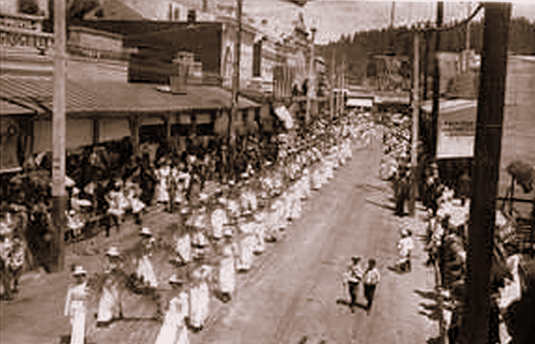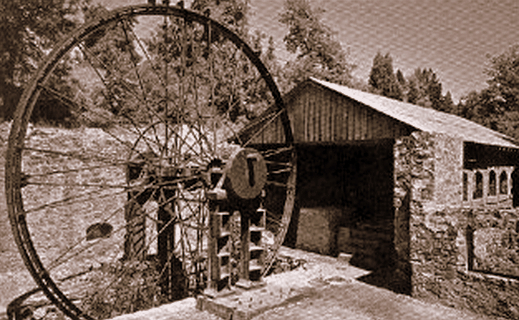Jacob & Joseph Weissbein
Values Codes I – E – L
Jacob Weissbein was born in Germany in the early 1850’s.
His brother, Joseph Weissbein, was born around 1854 in Germany.
Grass Valley
In 1873, Jacob and Joseph Weissbein came to America and settled in Grass Valley, Nevada County, California, in the Gold Country.
They worked for their brother-in-law, Jacob Heyman,i n his dry goods store on the corner of Mill and Bank Streets.
There they sold, among other goods, boots and shoes.
Jacob was the clerk and Joseph was the bookkeeper.
They worked on their English skills, which they had begun studying while still in Germany.
In 1876, with $700 saved from their wages at Heyman’s firm, they founded the Weissbein Brothers and Co. Bank.
They sold life insurance, real estate, stocks and bonds, and interests in local gold mines.
They bought gold and also worked as pawnshop brokers.
“To instill confidence, the Weissbeins borrowed wooden spools from their brother-in-law and wrapped them so that they appeared to be coins and placed them in their safe to impress potential customers.”
— Michael Janicot, WSJH
Among the Weissbein Brothers’ holdings were numerous mining claims: the Central North Star Quartz Mine, the General Grant Quartz Mine, mineral lots on Kate Hayes Hill, the Gold Flat Consolidated Quartz Mining Company, the Potosi Quartz Lode mining claim, the Pittsburg Gold Flat Mine Company, and the largest shares of the Work Your Own Diggings (W.Y.O.D.) Mine.
Both Weissbein brothers purchased real estate in the Grass Valley area.
Joseph Weissbein built a Victorian mansion at 428 West Main Street in 1893. The home remained in the family until 1940.
In 1902, the Weissbein brothers relocated to San Francisco, where they continued to invest in real estate.
Community
The Weissbein Brothers devoted time and energy to the preservation of the Grass Valley Jewish Cemetery.
The street leading to the cemetery was later renamed Weissbein Avenue.
In San Francisco, Joseph Weissbein and his family were members of Congregation Emanu-El.
Fraternal
Jacob and Joseph Weissbein were members of B’nai B’rith Garizim Lodge #43.
Family
In 1891, Joseph Weissbein married Harriet B. Wolfe (born c. 1871).
Together, they had two daughters,: Rose (b.1892) and Beatrice (b.1894).
In 1915, Joseph Weissbein died when the Pittsburg Gold Mine caught fire.
It was suspected that he was murdered by someone who had been setting fires to various mines in the area. The case was never resolved, despite Jacob’s offer of a $1,000 reward.
Source
- Michel Janicot, “The Weissbein Brothers of Grass Valley and San Francisco: Banking Mining and Real Estate,” Western States Jewish History 22/3.
Samantha Silver is curator of this Weissbein Brothers exhibit.
================================================
Jews in the News
A Few Years Earlier
Social Life in the Gold Rush Country — 1859
Grass Valley, California March 18, 1859—The ball of the Hebrew Benevolent Association of this place, Monday night, was well attended, notwithstanding the night was one of the most stormy of all this stormy winter. Everything went off well and pleasantly. The dance was continued into the small hours. A friend reminds us that we forgot to make the common appropriate quotation:
“Soft eyes looked love to eyes which spoke again; And all went merry as a marriage bell.”
—The Nevada National, Grass Valley, Saturday, March 26, 1859, WSJH Vol. 5, #3.
================================================

